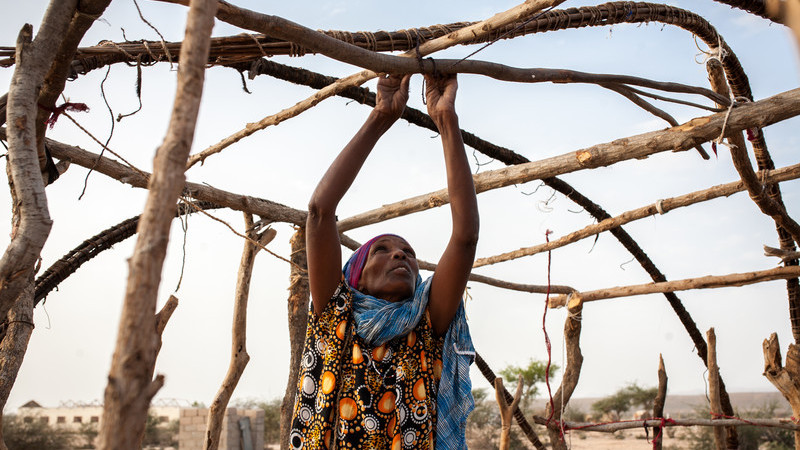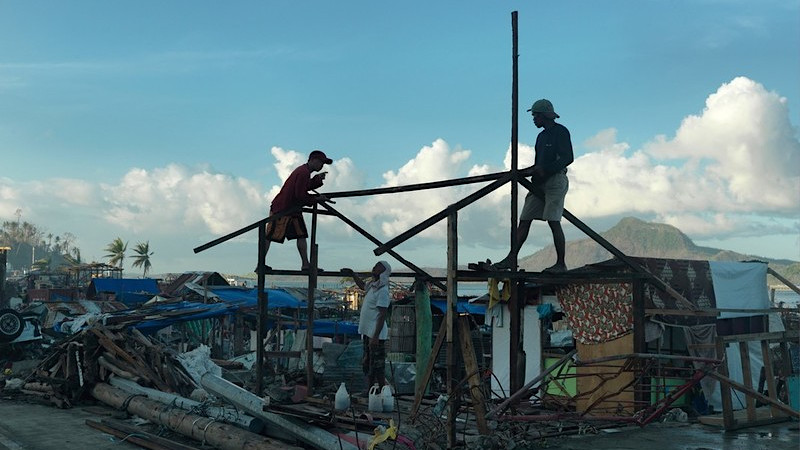Per order of appearance on the page:
- Jakob Dall/CARE 2017: A South Sudanese refugee building a house from homemade bricks in Imvepi refugee camp, Uganda
- Mustafa Saeed/CARE 2018: Families starting to build temporary shelters following Cyclone Sagar in Gargaara, Somalia.
Peter Caton/CARE 2013: Residents rebuilding their home after it was destroyed by typhoon Haiyan, Philippines.



